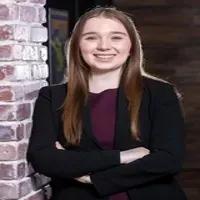Equity. Dictionary.com defines it as, “the quality of being fair or impartial.”
Allysa Seely received gold at the 2016 Rio Summer Games in triathlon. She has multiple first place wins under her belt from past race seasons. But unlike her fellow runners in the Olympic race, her win at the Paralympic game went unbroadcasted.
“There was absolutely no coverage of my race,” Seely said. “My family and friends at home had no way to follow the race, other than my sister, running around trying to Facebook Live it. That's just incredibly incredibly disheartening to me. Here we have literally the best athletes in the world competing, and there's no way that a single person in the US could watch our race.”
Seely, an Arizona native, is an unilateral below the left knee amputee. In 2010, she was diagnosed with Chiari II Malformation, basilar invagination, and Ehlers-Danlos Syndrome, which affect her brain, spine, and connective tissues.
The Paralympic games have often been pushed to the side by the different facets of society including the media, fans, and governing boards. It wasn’t till June 20, 2019 that the United States Olympic Committee changed its name to the United States Olympic & Paralympic Committee (USOPC).
Seely served on the USOPC after Rio as Paralympic Representative to help push for equity. During her time on the committee, she did a lot of work fighting for equal medal bonuses. In September 2018, it was voted that Paralympic athletes would receive the same medal bonuses as their Olympic counterparts.
Seely, an Arizona native, has become more vocal over the years about equity for both para and female athletes.
She’s become involved with ParityNow, which is a platform to help link female athletes with link-minded sponsors invested in their success. For her, the idea of parity extends into all aspects of her career.
“We're looking for equality in sport, and we're looking to remove the labels,” Seely said. “We have some of the greatest female athletes of all time in the US. Yet they're always labeled as female athletes. That little nomenclature has to be added in there. It represents our perspective as a nation, and then taking that one step further as a disabled female athlete. When people add those labels, it takes away from my accomplishments. I do have a disability and I am a Paralympic athlete, but it comes with the connotation that because I'm female, because I'm disabled, because I'm a Paralympic athlete, I'm less than.”
The modern Olympic Games were never a perfect movement about peace and equality; the Games were rooted in elitist beliefs. Arizona State sports Historian Victoria Jackson notes how these ideals have carried over the decades.
“Walking through the course of the last hundred years the Olympic Games have changed dramatically,” Jackson said. “The imposition of sports governing bodies in a kind of a top down manner, meant that power has remained among the elite. The opportunity to play and compete, despite the athletic success and excellence at the kind of grassroots level, means that there are still barriers to entry.”
The ideals baked into sports from the start have made it hard to break barriers. ASU Senior Associate Athletic Director Tesh Rao said misconceptions and assumptions such as Paralympic athletes not being elite or only existing for a “feel-good moment” make it hard to change the narrative.
As Seely has progressed through her career, she’s become comfortable with sharing her opinions and values, as well as listening to those around her. She hopes the work she does and the stories she shares can help inspire the next and current generation of female athletes.
“It's okay to walk in, have a voice, to take your seat at that table, and to take up space,” Seely said. “Let everybody know that you're there to make a difference. You're there to build upon what's been created. And sometimes that means, breaking it down to rebuild it. I want everybody to feel empowered, no matter what age they are no matter where they are in their life.”
Seely is aiming for the Tokyo 2020 games with hopes of defending her gold medal. She hopes coverage of the Paralympic events improves from what little was shown during 2016.
“I’m hopefully that turns around and people can turn on the television and see these amazing athletes compete and see them leave everything on that course,” Seely said.
About Haley Spracale
Haley Spracale, Community Manager at Featured, Sports and Olympic History Minor Focus at ASU

